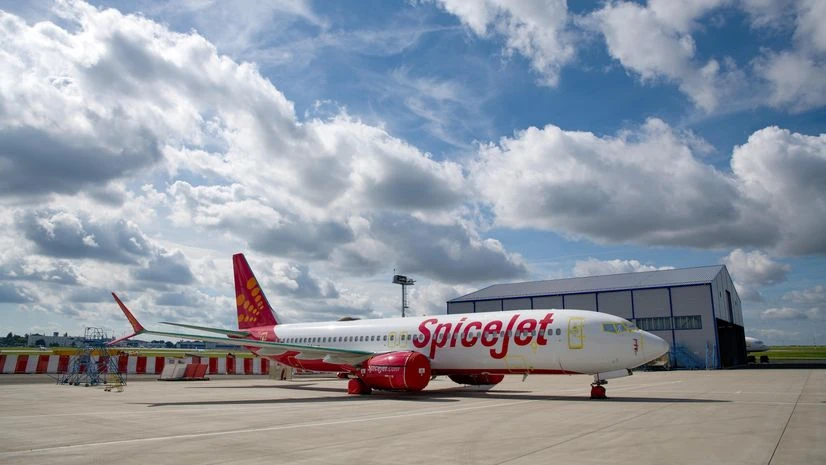)
Spicejet(Photo: Shutterstock)
This move comes after the airline admitted to not paying around Rs 220 crore in tax deducted at source (TDS) from employees’ salaries between April 2020 and August 2023. The non-payment of taxes had drawn attention from tax authorities and added to the airline’s ongoing financial challenges.
SpiceJet’s QIP, which was oversubscribed, attracted participation from 87 Indian and international institutions. Alongside the Rs 3,000 crore raised, the airline is set to receive an additional Rs 736 crore from a previous funding round, strengthening its financial outlook.
Declining market share and operational struggles
Despite the fresh capital infusion, SpiceJet’s market share has continued to shrink, according to data from the Directorate General of Civil Aviation (DGCA). In January 2023, the airline held a 5.6 per cent market share, but by August, it had dropped to 2.3 per cent, marking a significant decline from its 10.5 per cent share in 2021.
SpiceJet’s financial woes have been compounded by its inability to secure additional funding, resulting in defaults on lease payments for its aircraft. Several lessors have taken the airline to insolvency court over unpaid dues. The airline’s operational fleet has been reduced from 74 aircraft in 2019 to just 28 in 2024, with 36 aircraft grounded due to unpaid dues.
The airline’s mounting liabilities include Rs 3,700 crore owed to lessors, engineering, and electronic data capture (EDC) liabilities, as well as Rs 650 crore in unpaid statutory dues. Rising working capital costs, fixed rental expenses at airports, and escalating operational costs have further burdened the airline.
Recent operational disruptions
SpiceJet has faced additional challenges in recent weeks, including flight disruptions in Dubai due to unpaid airport dues. Last month, the airline was forced to operate empty flights from Dubai after passengers were unable to check in. Several flights had also been cancelled for similar reasons earlier in the month. These incidents prompted the DGCA to place SpiceJet under enhanced surveillance at the end of August.
The airline also temporarily furloughed 150 cabin crew members for three months due to the lean travel season and has delayed salary payments, along with defaulting on provident fund contributions.
Financial relief and future plans
However, financial relief arrived before the QIP, when one of SpiceJet’s largest lessors, Carlyle, agreed to convert up to $50 million of dues into equity. The deal also includes the restructuring of aircraft lease obligations totalling $137.68 million, which will be reduced to $97.51 million upon settlement. Carlyle has also expressed interest in purchasing a stake in SpiceJet’s cargo arm, SpiceXpress & Logistics Pvt Ltd, through compulsorily convertible debentures.
Looking ahead, the airline plans to expand its fleet to 40 aircraft by March 2025, matching the size of rival Akasa Air, with a further 40 aircraft to be added the following year. During high-demand periods, the airline intends to lease additional planes on a short-term wet lease basis, according to chairman and managing director Ajay Singh. For the upcoming festive season, the airline will induct eight aircraft.
“Despite our shrinking size, in FY24, there were eight airports where we held more than 50 per cent of seat capacity and 40 routes where SpiceJet had a monopoly. We also have 30 exclusive destinations under the regional connectivity scheme,” Singh said.
First Published: Sep 26 2024 | 4:16 PM IST





